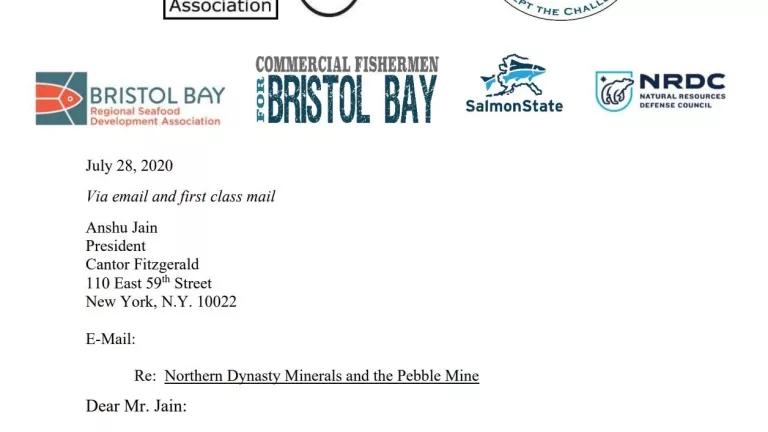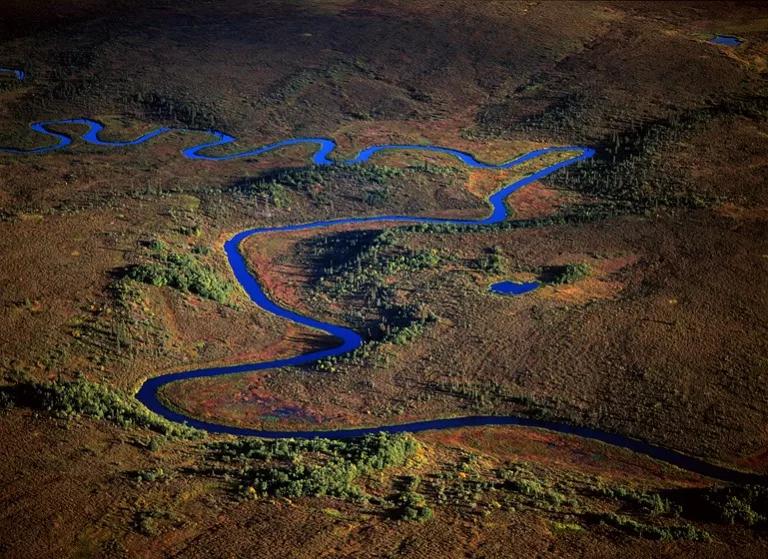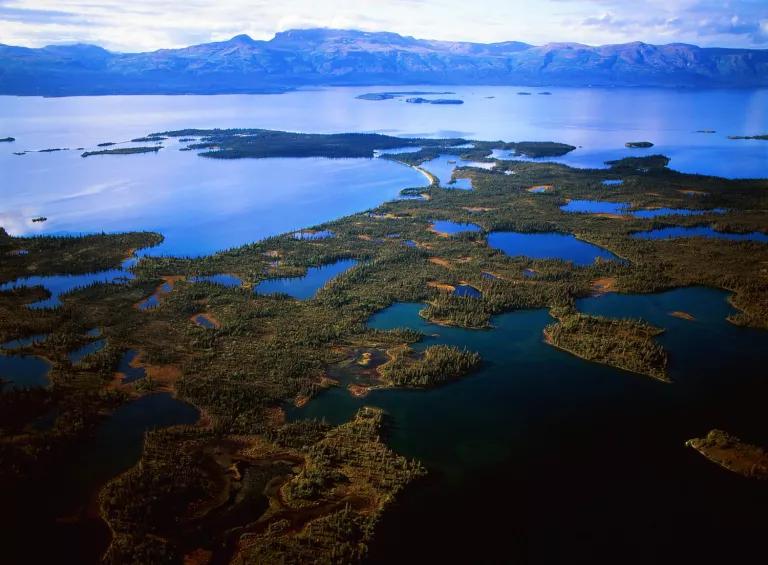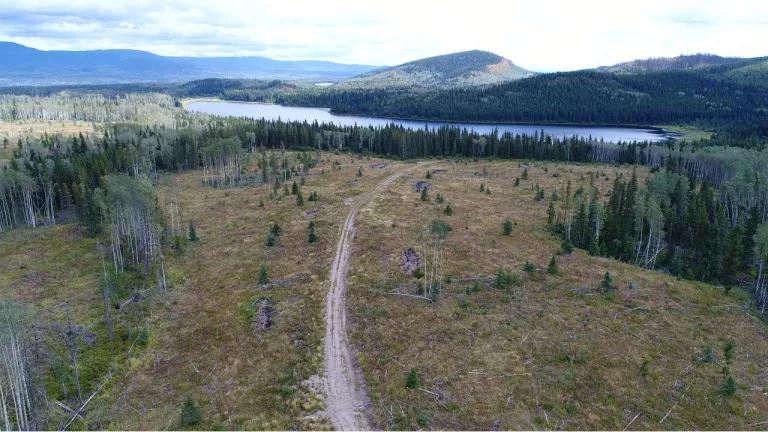Pebble Mine: Open Letter to Cantor Fitzgerald
Bristol Bay leaders urge lead underwriter for Northern Dynasty Minerals to cut ties, cease raising funds for widely condemned open pit copper and gold mine that risks world’s greatest wild salmon fishery and communities that it sustains in Bristol Bay, Alaska.

Bristol Bay Letter to Cantor Fitzgerald
Bristol Bay leaders urge lead underwriter for Northern Dynasty Minerals to cut ties, cease raising funds for widely condemned open pit copper and gold mine that risks world’s greatest wild salmon fishery and communities that it sustains in Bristol Bay, Alaska.
Howard Lutnick, Chairman and CEO
Anshu Jain, President
Cantor Fitzgerald
110 East 59th Street
New York, N.Y. 10022
Re: Open Letter on the Pebble Mine
Dear Mr. Lutnick and Mr. Jain:
On July 28th, Bristol Bay leaders and their coalition partners—including the Natural Resources Defense Council (“NRDC”) (on behalf of its three million members and conservation activists)—reached out to Cantor Fitzgerald to express our deep concern about its significant financial relationship with one of the most dangerous, environmentally and socially unacceptable development projects anywhere in the world today. In the interest of brevity, we will not repeat, but incorporate by reference, the substance of that detailed letter, linked here.
Since then, our concern has been confirmed, and it has grown.
With appreciation for your generous philanthropy in the wake of the September 11, 2001 World Trade Center terrorist attack—initially for the people of New York and now around the globe—we have contacted you not to seek financial or other direct assistance.
We write instead in the hope that you will understand and respect the efforts of the Bristol Bay region’s people over many years to defend themselves from a destructive mining scheme that threatens their communities and their way of life—a scheme in which Cantor Fitzgerald has unfortunately become a key financial participant.

Bristol Bay Watershed
Called the Pebble Mine, it is a massive open pit gold and copper mine proposed to be sited at the headwaters of the greatest wild sockeye salmon ecosystem on Earth, in Bristol Bay, Alaska. This ecosystem produces 30-60 million fish each year—this summer alone an estimated 58.2 million—and 50 percent of the world’s sockeye salmon. In overwhelming numbers the people of Bristol Bay—joined by a broadly diverse coalition of stakeholders around the world—have opposed the Pebble Mine and are determined to do so until the project is stopped.
The project’s 100 percent owner is Northern Dynasty Minerals—a small, financially-stressed Canadian company with no other assets. As you may know, Cantor Fitzgerald Canada Corporation is the lead underwriter for Northern Dynasty and the Pebble Mine. Since 2015, Cantor Fitzgerald and a syndicate of banks have raised over $123 million for Northern Dynasty and guaranteed over $100 million in “bought deals” covering almost 90 million shares.
Yours is an essential, existential financial service to Northern Dynasty, because, over the past decade, that cash-strapped company has been abandoned by each of its major global mining company partners—Mitsubishi Corporation in 2011, Anglo American in 2013, Rio Tinto in 2014, and First Quantum Minerals in 2018. In 2018, BlackRock zeroed out its investment in Northern Dynasty, and, most recently in May 2020, Morgan Stanley—formerly Northern Dynasty’s fourth largest institutional investor—reported the sale of over 99 percent of its shareholding in the company.
We believe that the Pebble Mine is a bad investment, that ultimately it is certain to fail, and that it is uniquely unworthy of Cantor Fitzgerald’s financial participation or support—in conflict with humanitarian values and your demonstrated commitment to public service. Northern Dynasty is a company, and the Pebble Mine is a project, fraught with significant risk of all kinds based on the unique threat that it poses to the most productive wild salmon ecosystem on the planet and to the communities that the fishery sustains.
Simply stated, the Pebble Mine may be the most widely condemned mining project anywhere today. This is neither opinion nor hyperbole; it is objective fact—a rare consensus of condemnation reflected in the reality that the Pebble Mine has been
- intensely opposed for years by 80 percent of the residents in Alaska’s Bristol Bay region—that is, by the people who live there—and, according to a state-wide poll released just last summer, by 62 percent of Alaskans;
- abandoned over the past decade by each of its major mining partners;
- described by the U.S. Environmental Protection Agency, after years of peer-reviewed scientific study, as potentially “catastrophic” in its environmental impacts;
- dismissed repeatedly “as the wrong mine in the wrong place” by a consensus of public officials from former Alaska Senator Ted Stevens to former EPA Administrators for Presidents Nixon, Reagan, George H. W. Bush, and George W. Bush.
- denounced in 2016 by the IUCN World Conservation Congress, which voted virtually unanimously to oppose the Pebble Mine and urged the United States government to deny permitting;
- opposed by 60 jewelry companies around the world, led by Tiffany & Co., which has concluded that “there are certain places where mining should simply never occur. Alaska’s Bristol Bay is one such place”;
- abandoned by global investment leaders like BlackRock in 2018 and by Morgan Stanley in 2020;
- condemned by a growing chorus of congressional leaders, from Alaska Senator Dan Sullivan (“No Pebble Mine”) and Alaska Senator Lisa Murkowski (“a permit cannot be issued”) to House Transportation and Infrastructure Chair Peter DeFazio (“an abomination”) to West Virginia Senator Joe Manchin (“I again urge the Administration to completely veto a Clean Water Act permit for this project”) to Senator Maria Cantwell (“beyond unconscionable”;
- actively targeted this summer by key Trump Administration voices and supporters, including, for example, Donald Trump, Jr., former Chief of Staff to the Vice President Nick Ayers, and Fox News host Tucker Carlson; and
- found, in August 2020, by the Army Corps of Engineers to cause “unavoidable adverse impacts to aquatic resources . . . result[ing] in significant degradation to those resources.”
Most recently, undercover videotapes released on September 21, 2020 reveal Pebble’s CEOs bragging about their powers of political manipulation, demeaning government officials, and confirming Northern Dynasty’s real plan, previously denied, to build a 200-year mine at the headwaters of Bristol Bay. Two days later, the CEO of Northern Dynasty’s wholly-owned subsidiary—the Pebble Partnership—resigned, and the CEO of Northern Dynasty apologized to the people of Alaska (but notably did not resign despite his own participation in the videotaped meetings). Opposition in Alaska has intensified.
While these latest revelations are disturbing, the fundamental problem has always been the project itself and its unacceptable location.
More than any other concern, it is this inalterable incompatibility that has most animated the breadth and intensity of Pebble’s opposition. Thousands of acres of pristine tundra would be gouged from the top of the watershed that feeds the national treasure that is the Bristol Bay fishery. It is not only the “Fort Knox” of sockeye salmon on Earth but the sustainable economic engine of southwest Alaska, fueled by both commercial fishing and recreation that generates annual revenues of $1.5 billion and jobs for 14,000 people, and the people and wildlife of the region have subsisted on its bounty for centuries.
And, as Pebble goes, so goes the watershed, with an essentially eternal supply of food pitted against a vast industrialized, contaminated mining district. As over a decade of intense local opposition attests, the people of Bristol Bay have inalterably chosen the food.
We believe that any prudent investor—and any conservationist—ignores this unique history at their financial and reputational peril. And, to be clear, we’re not asking Cantor Fitzgerald to make a moral judgment.
Objectively, the Pebble Mine is a bad financial investment. As you know, over the past decade, in the face of its deep opposition and pervasive risk, Northern Dynasty’s share price has dropped over 95 percent or more. Not only have all of the company’s mining partners walked away, but industry experts have now publicly acknowledged the consensus in the mining industry generally that “Pebble should not go forward.”
The fate of the Pebble Mine at the headwaters of the 40,000-square mile Bristol Bay watershed may be the most consequential land use decision in North America today. It is, as so many stakeholders have concluded over the years, “the wrong mine in the wrong place.” Cantor Fitzgerald’s association with Northern Dynasty and this project is inconsistent with your commitment to financial, environmental, and social sustainability and fraught with regulatory, litigation, investment, and reputational risk for you and your clients.
Mr. Lutnick and Mr. Jain, in the face of the unavoidable environmental and social risk, broad-based condemnation, and immovable lack of substantial local support, we ask how you and your colleagues can justify enabling such a project in such a place? You have the power to make a difference by identifying and implementing specific actions within your legal authority to dissociate Cantor Fitzgerald and its financial services from Northern Dynasty—a company whose sole asset puts at risk a national treasure, a natural gem, and the waters, fisheries, economy, culture, and way of life of the people and communities of Bristol Bay.
For all these reasons, we ask for your help.
Very truly yours,
Joel Reynolds
Natural Resources Defense Council
Take action now to stop the Pebble Mine.

Lake Iliamna, Alaska




